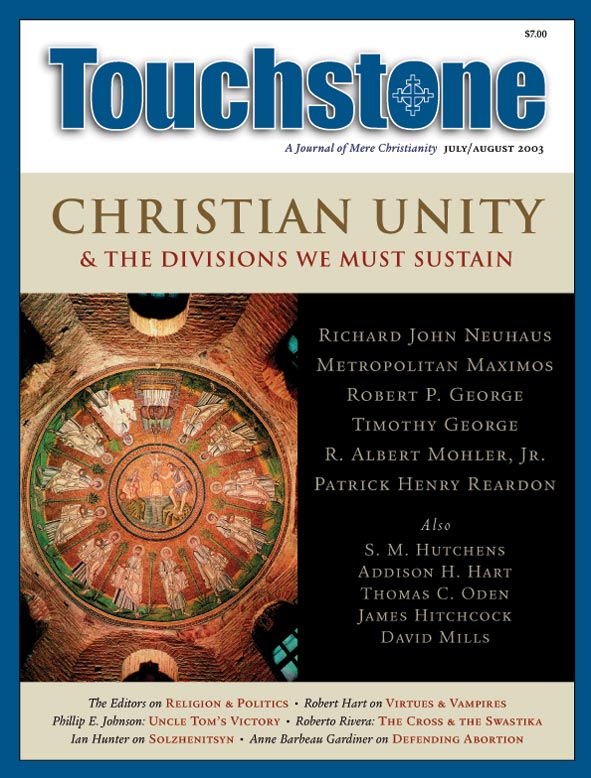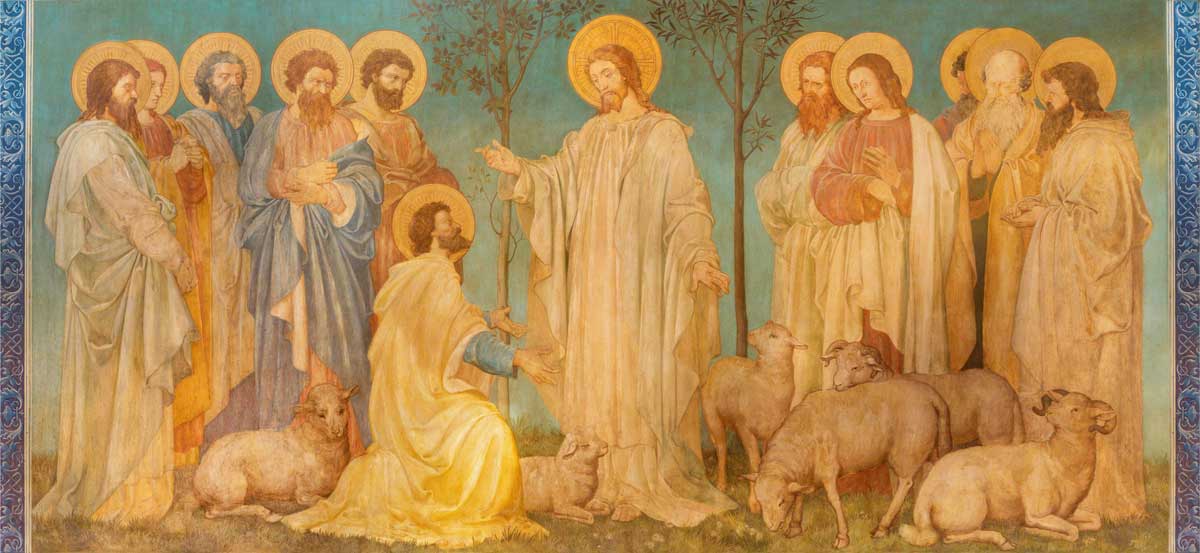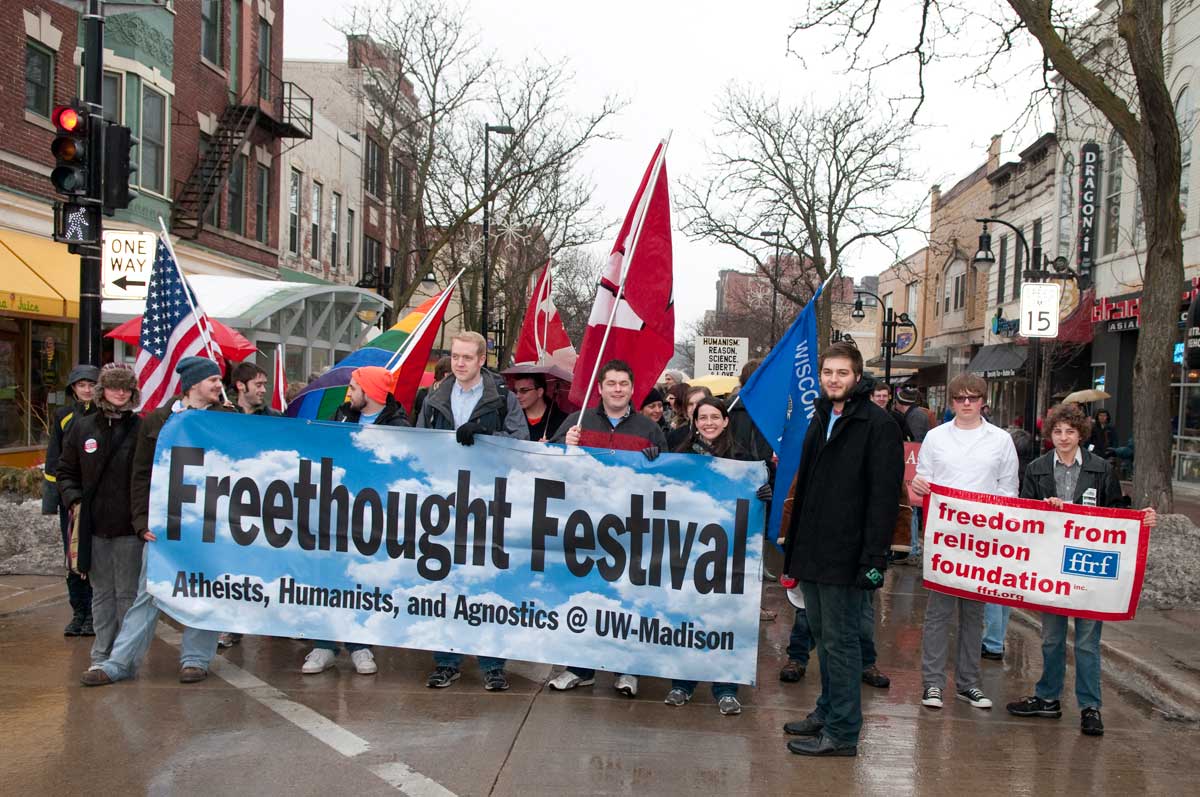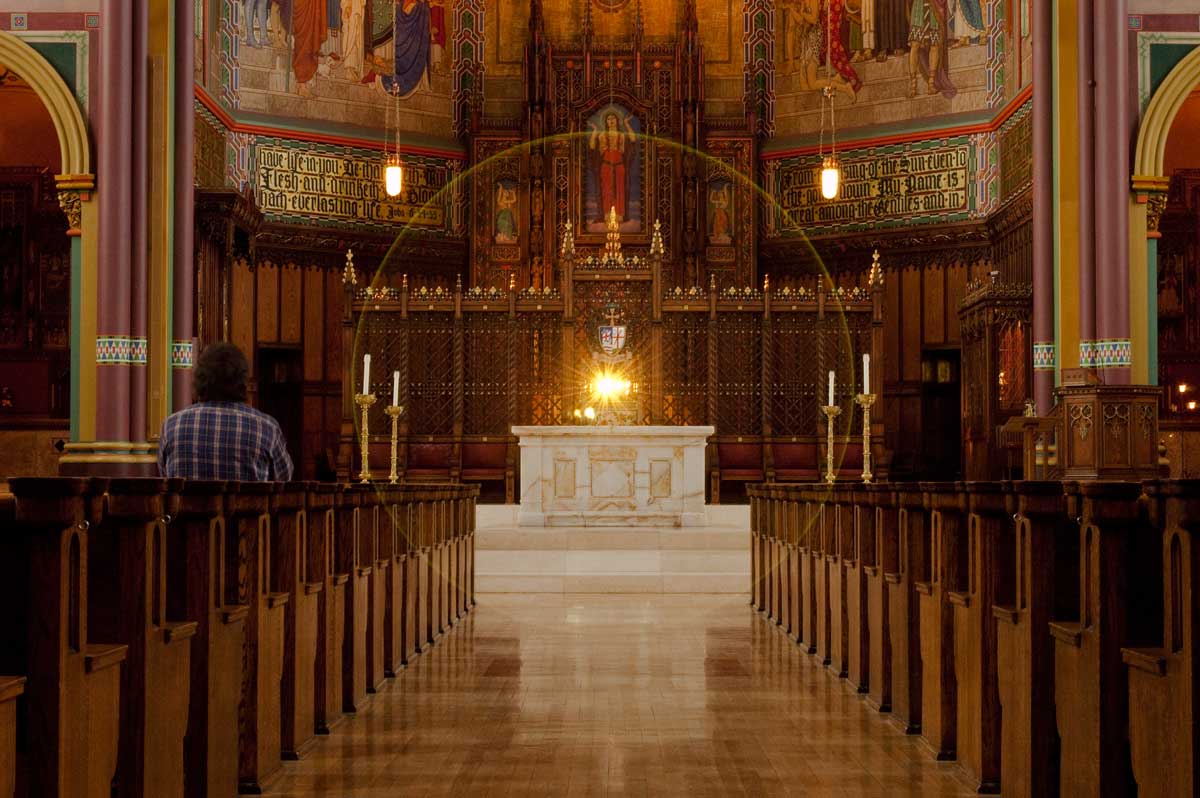View
The Last Prophet
Ian Hunter on Alexander Solzhenitsyn
Who has been the most influential person of the last half-century? A tough question, that. I asked several of my acquaintances; interestingly enough, their immediate and unanimous response was: “Oh, Pope John Paul II, of course.” Other names mentioned were Ronald Reagan, Margaret Thatcher, Mother Teresa, Bill Gates, Billy Graham, and—for sheer evil—Osama bin Laden.
As it happens, my vote (though I am not a Roman Catholic) would also go to Pope John Paul II, who has stood astride our age like a colossus. But a case could be made for another man, one whose name was not mentioned by a single one of my respondents: Alexander Isaevich Solzhenitsyn.
So much has Solzhenitsyn been forgotten, both in the West and in the formerly Communist East, that the subtitle of Joseph Pearce’s recent perceptive biography is “A Soul in Exile.” If ever a man was unfashionably (and unfairly) stereotyped it is Solzhenitsyn, a soul in exile indeed: On the comparatively rare occasions when his name surfaces he tends to be dismissed as a cold warrior, a tsarist sympathizer, an authoritarian, a latter-day Jeremiah, even a Chicken Little.
Even former admirers have “gone off” him. Not long ago I asked a former colleague, a history professor and a Russian Orthodox, who had championed Solzhenitsyn during the dark days of Communism, to give a talk on Solzhenitsyn as part of a lecture series on “Great Christians of the 20th Century.” My colleague declined, saying that he now doubted whether Solzhenitsyn could be considered a Christian in any meaningful sense.
Faith’s Thread
Such a claim is preposterous, as Pearce’s book demonstrates. Solzhenitsyn’s Christian faith is the most consistent thread in a long, turbulent life.
It is true that as a university student, then as a soldier, Solzhenitsyn was an avowed Marxist. But following his arrest and imprisonment (for belittling remarks about Joseph Stalin made in private correspondence, for which he spent eight years in forced labor camps in the Arctic), Solzhenitsyn underwent a Christian conversion. He told Pearce: “When at the end of gaol [he was released in 1953], on top of everything else, I was stricken with cancer, then I was fully cleansed, I came back to a deep awareness of God and a deep understanding of life.” That understanding, initially deistic, would later express itself through an orthodox Christian worldview.
Solzhenitsyn erupted into public attention during the brief Soviet thaw of 1962 when the authorities unexpectedly allowed publication of his short masterpiece One Day in the Life of Ivan Denisovich, the story, drawn from his own experience, of a political prisoner in a forced labor camp. He had already completed two longer novels, Cancer Ward and The First Circle, but their publication was banned. However, both novels circulated widely through the Russian literary underground in hand-copied form (samizdhat) and were subsequently published in the West.
But the thaw did not last long, and Solzhenitsyn’s criticism of the Soviet regime in Ivan Denisovich had brought him to the attention of the KGB, the Soviet secret police. By the late 1960s he was acclaimed abroad as the greatest Russian author since Tolstoy, and his international reputation made it difficult for the KGB to simply lock him up and throw away the key, as they regularly did to less well known dissidents and Christians.
What Solzhenitsyn’s many Western admirers would come to understand only a decade later was that he was as implacable a critic of the unbridled consumerism of the capitalist West as he was of the repressive totalitarianism of the Communist East. “Untouched by the breath of God, unrestricted by human conscience,” he once said, “both capitalism and socialism are repulsive.”
In 1969 Solzhenitsyn was expelled from the Russian Writer’s Union. A year later, he was awarded the Nobel Prize for Literature. Correctly deducing that if he went to Stockholm to receive the prize, the authorities would revoke his passport and prevent his return, Solzhenitsyn stayed put, but he sent a powerful acceptance speech (which was read by the prominent Roman Catholic novelist Francois Mauriac) defining the nature and purpose of art.
“The task of the artist,” Solzhenitsyn wrote,
is to sense more keenly than others the harmony of the world, the beauty and the outrage of what man has done to it, and poignantly to let people know. By means of art we are sometimes sent—dimly, briefly—revelations unattainable by reason. Like that mirror in the fairy tales—look into it, and you will see not yourself but, for a moment, that which passeth understanding, a realm to which no man can ride or fly. And for which the soul begins to ache.
Following publication in the West of the first volume of The Gulag Archipelago, his history of the prison camps to which dissidents were sent, Solzhenitsyn was arrested on February 12, 1974. The next day he was stripped of his citizenship and deported as a traitor. Throughout the long years of persecution, Solzhenitsyn had never sought to defect; now, by official fiat, he would spend the next two decades living as an exile. But as his wife, Alya, said at the time: “They can separate a Russian writer from his native land, but no one has the power and strength to sever his spiritual link with it, to tear Solzhenitsyn away from it.”
In the West
Solzhenitsyn spent his first years of exile in Zurich, where he completed his autobiography, The Oak and the Calf, and wrote an account of Lenin’s role in the October Revolution, Lenin in Zurich, that refuted the adulatory official propaganda line about Lenin. Then, in the fall of 1976, Solzhenitsyn moved with his family to a secluded estate near Cavendish, Vermont.
For the next decade, Solzhenitsyn maintained a monastic and disciplined routine that enabled him to finish what he considered his greatest achievement, The Red Wheel, a grand cycle of books retelling Russian history. During this time Solzhenitsyn was seldom seen, and only rarely gave interviews or made public pronouncements. One exception was in June 1978, when he delivered the commencement address at Harvard University. The West’s emphasis on secular rights, Solzhenitsyn told the Harvard students, had produced shallow, feckless societies that now stood at the brink of “the abyss of human decadence.”
“It is time in the West,” Solzhenitsyn told his Harvard audience, “to defend not so much human rights as human obligations.” Instead of the rhetoric by which human rights trump human responsibilities, it was time for humanity to learn a lesson from the wormwood and the gall of Soviet experience. “Through deep suffering, people in our country have now achieved a spiritual development of such intensity that the Western system in its present state of spiritual exhaustion does not look attractive.”
Solzhenitsyn concluded his remarkable address with these words:
If the world has not approached its end, it has reached a major watershed in history, equal in importance to the turn from the Middle Ages to the Renaissance. It will demand from us a spiritual blaze, we shall have to rise to a new height of vision, to a new level of life where our physical nature will not be cursed as in the Middle Ages, but even more importantly, our spiritual being will not be trampled upon as in the Modern Era. This ascension will be similar to climbing onto the next anthropologic stage. No one on earth has any other way left but—upwards.
This was not what his audience expected to hear, and the counterattack was swift and savage. The Washington Post pronounced Solzhenitsyn unbalanced, and accused him of being fitted to live only under totalitarian regimes; Roslynn Carter, wife of the hapless US President, denied that the United States was materialistic. One American commentator called Solzhenitsyn “a freak, a monarchist, an anti-Semite, a crank, a has-been not a hero.” From this moment on, it was no longer possible for Western liberals to consider Solzhenitsyn one of their own.
Solzhenitsyn’s defenders were few, but Malcolm Muggeridge was among them. As the wolves snarled and bared their fangs, Muggeridge declared:
What amazing perceptiveness on his part to have realized straight away, as he did, that the true cause of the West’s decline and fall was precisely the loss of a sense of the distinction between good and evil, and so of any moral order in the universe, without which no order at all, individual or collective, is attainable. . . .
Solzhenitsyn sees Western man sleepwalking into the same servitude that in the Soviet Union had been imposed by force. On campuses and the TV screen, in the newspapers and the magazines, often from the pulpits even, the message is being proclaimed: Man is now in charge of his own destiny and capable of creating a kingdom of heaven on earth in accordance with his own specifications, without any need for a God to worship or a Savior to redeem him or a Holy Spirit to exalt him. How truly extraordinary that the most powerful and prophetic voice exploding this fantasy, Solzhenitsyn’s, should come from the very heart of godlessness and materialism after more than sixty years of the most intense and thoroughgoing indoctrination in the opposite direction ever attempted.
In 1979, a full decade before the Berlin wall came down and with it the final ignominious collapse of the Soviet Union, Solzhenitsyn told a biographer, Michael Scammell: “I am firmly convinced that I will return. It seems to me it is only a matter of a few years before I return to Russia. I have no proof of it, but I have a premonition, a feeling.” At the time, it seemed highly unlikely.
A Different Place
Yet Bernard Levin’s column in the London Times on June 4, 1993, was headed, “A Giant Goes Home.” Levin wrote: “We have it on Shakespeare’s authority, no less, that the whirligig of time brings in his revenges. But can there ever have been any revenge so sweet, or any revolution of the clocks so meaningful as the news that Alexander Solzhenitsyn is shortly to return to his homeland, Russia, after almost twenty years of a forced exile.”
Just before Solzhenitsyn made his return, in the form of a two-month pilgrimage by rail across Russia, he stopped off in Rome for an audience with Pope John Paul II. The meeting was highly symbolic: two men whose lives and words had demonstrated for those with eyes to see the triumph of the human spirit over totalitarianism. Solzhenitsyn had said that Karol Wojtyla’s accession to St. Peter’s chair in Rome was “a direct gift from God.” And the pope, typically, had read and pondered Solzhenitsyn’s writings.
The Russia to which Solzhenitsyn returned in 1993 was a very different place, metaphysically almost beyond recognition. In Moscow the statue of Alexander Pushkin looked out on a McDonald’s. There existed a voracious market for Western porn. It was Charles Bronson’s Death Wish, not the movie version of Ivan Denisovich, that flew off the video shelves. A British journalist made a search of Moscow’s largest bookstore but was unable to find a single copy of any of Solzhenitsyn’s novels.
For a short time, Solzhenitsyn had a weekly fifteen-minute television program called “Meetings with Solzhenitsyn.” In a few months it was dropped due to viewer uninterest, replaced by a program featuring the Italian parliamentarian and porn queen, La Cicciolina.
In fact Solzhenitsyn had returned to a new kind of exile, the wasteland of postmodern Russia. He now lives in seclusion on a woodland estate outside Moscow, a house not dissimilar to his Vermont retreat. At age 84, having suffered two heart attacks, does he think about death? A reporter from the New Yorker once asked him that question. He answered: “[Death] will be just a peaceful transition. As a Christian, I believe there is life after death, and so I understand that this is not the end of life. The soul has a continuation, the soul lives on. Death is only a stage, some would even say a liberation. In any case, I have no fear of death.”
Michael Nicholson poignantly described his fate: “As for Solzhenitsyn, he finds himself sounding a tocsin that has pealed through centuries of Russian history and grappling in his declining years with the fear that perhaps he rings in vain.” In a 1996 article titled, “Russia Close to Its Deathbed,” Solzhenitsyn wrote that the “moral qualities” of the current Russian leadership were indistinguishable from their Communist predecessors. Two years later, he said: “It is as if, just having survived the heaviest case of cholera, to immediately upon recuperation get the plague. It is very hard to withstand.”
The Future
And what of the future? Is it possible that Russians might slow down, think, perhaps even pray, change directions? With God, anything is possible—but even Solzhenitsyn considers it unlikely. He told Pearce: “The characteristics of modernity, the psychological illness of the twentieth century, is this hurriedness, hurrying, scurrying, this fitfulness—fitfulness and superficiality. Technological successes have been tremendous but without a spiritual component mankind will not only be unable to develop further but cannot even preserve himself.”
In his last public appearance in Moscow, Solzhenitsyn said that one defining characteristic of contemporary humanity is “the loss of the ability to answer the principal problem of life and death. People are prepared to stuff their heads with anything, and to talk of any subject, but only to block off the contemplation of this subject.”
Will Solzhenitsyn’s powerful voice be heeded? Not in the West, certainly, where he is a forgotten man. In Russia, then? It seems unlikely. The Russian writer Alexander Genis was probably correct in describing Solzhenitsyn as “the last remaining prophet in the abandoned temple of absolute truth.”
Of course it is a common fate of prophets to be ignored, even ridiculed, in their own time and generation, yet to be appreciated, occasionally even heeded, by posterity. It may prove to be so with Solzhenitsyn. If Russia is to find a path out of its quagmire, it will perforce have to consider his critique of how it got there; and if Russia hears about its past from him, it is not beyond all hope that it might hear him when he speaks of its future.
Ian Hunter is Professor Emeritus in the Faculty of Law at the University of Western Ontario. He is the author of biographies of Robert Burns, Hesketh Pearson, and Malcolm Muggeridge.
subscription options
Order
Print/Online Subscription

Get six issues (one year) of Touchstone PLUS full online access including pdf downloads for only $39.95. That's only $3.34 per month!
Order
Online Only
Subscription

Get a one-year full-access subscription to the Touchstone online archives for only $19.95. That's only $1.66 per month!
bulk subscriptions
Order Touchstone subscriptions in bulk and save $10 per sub! Each subscription includes 6 issues of Touchstone plus full online access to touchstonemag.com—including archives, videos, and pdf downloads of recent issues for only $29.95 each! Great for churches or study groups.
Transactions will be processed on a secure server.
more on biographical from the online archives
more from the online archives
calling all readers
Please Donate
"There are magazines worth reading but few worth saving . . . Touchstone is just such a magazine."
—Alice von Hildebrand
"Here we do not concede one square millimeter of territory to falsehood, folly, contemporary sentimentality, or fashion. We speak the truth, and let God be our judge. . . . Touchstone is the one committedly Christian conservative journal."
—Anthony Esolen, Touchstone senior editor









